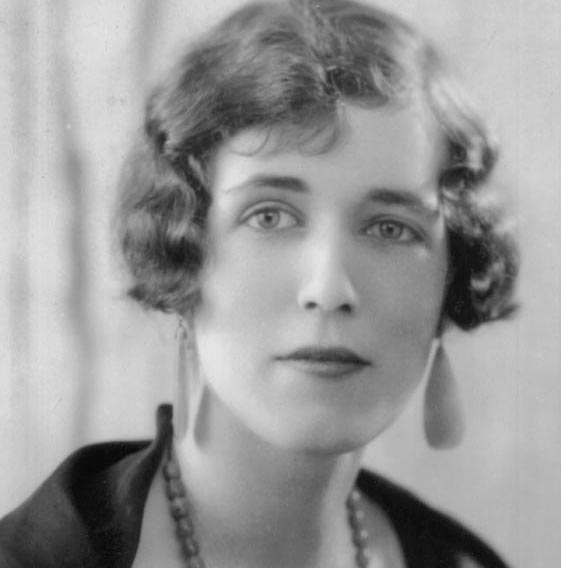And then came Georgette Heyer with Black Sheep
I was an absolutely voracious reader by the age of nine devouring every book in sight. These included most of the books in the small collections of my father and mother. My mother’s collection consisted largely of about 15 novels by Erle Stanley Gardner featuring that prince of the legal fraternity, Perry Mason. My father’s collection was more eclectic containing books by Rafael Sabatini, James Michener, Berkely Gray, Leslie Charteris, Vladimir Nabokov, Simone De Beauvoir and John Masters among others.
When my father was transferred from Mathura to Thiruvananathapuram in 1972 one of the first things my parents did on arrival was take a membership in the British Council Library. Housed in an old bungalow next to the YMCA and the Central Stadium, the Library was one of the landmarks in Trivandrum and was soon to become my favourite haunt.
The membership allowed us the privilege of borrowing four books and two periodicals. Library day was Saturday when my mother used to cart my younger sister and me off to the Library in the morning. We would spend the morning there before returning home for lunch.
I was allowed to borrow one book, my sister another and my mother would exercise her rights as an adult and would get to borrow two books. The Children’s Section consisted of three shelves of books housed in a large L-shaped room that also contained the Fiction Section. I would make a beeline for the Children’s Section and grab one of the adventures of Billy Bunter, William, Jennings or the Lone Piners.
My sister, of whose tastes the less said the better, would pick up a book of fairy tales by her favourite author Ruth Manning-Sanders. I could never understand her fondness for fairy tales unless it was for the fact that she loved stories about witches many of whose traits she possessed in abundance.
My efforts to make her see reason and borrow something more suitable for the consumption of ordinary decent human beings, namely a book by one of the authors I enjoyed, usually fell on deaf ears. Those of you who have been unfortunate enough to have irritating and tyrannical younger sisters will empathise with me.
My mother would usually pick up a book by one of her favourite British authors who including Winston Graham, W.H.Canaway , Jean Plaidy and Georgette Heyer. Georgette Heyer, an author of Historical Romances set in Regency England, was the author she enjoyed the most and I found her taste appalling. No self-respecting pre-teen boy would be caught dead reading a romance.
The derision he would have to endure among his peers, should he be caught reading a romance novel, would daunting in itself. Even the name Georgette sounded so soppy and silly. I took an instant dislike to her.
The missing Black Sheep
On one of the visits to the Library my mother picked up a large print copy of Georgette Heyer’s ‘ Black Sheep ‘. On the way home from the Library we stopped off at a family friend’s house. On hearing that we were coming from the Library, the friends pulled out all the books we had borrowed to satisfy their curiosity as to our literary tastes. Later we stuffed all the books back in our bags and headed for home.
Shortly after reaching home, we discovered that the book by Georgette Heyer, acting true to its name, had mysteriously vanished. The family friends were contacted but they informed that the book was not at their place. I was privately of the opinion that the little apprentice witch had probably turned it into a real black sheep and had added it for seasoning to the cauldron that she doubtless had stashed away somewhere on the premises.
My mother marched off to the Library, informed them of the loss of the book, and paid for it to be replaced. A couple of days after the book had been paid for, the family friends dropped by and dropped off the book which, they informed, had been hiding under a chair in their house, terrified at the fate that it apparently anticipated at the hands of You Know Who. As the book had already been paid for, it took its place on the shelf along with my mother’s other books.

Within a couple of months, I had worked my way through everything the Children’s Section had to offer, except for those disgusting fairy tale books that the little witch still insisted on reading basically just to irritate me. I soon graduated to the adult section, picking up books by the likes of Leslie Charteris, John Creasy and Edgar Wallace.
The problem was that a visit to the Library was only every Saturday, whereas I would have finished reading the book I borrowed on Saturday itself or, at the very latest, by the next day. Now I had to wait five more days till the next visit. The wait was intolerable. I was like an addict denied his fix. Just when the withdrawal symptoms were becoming unbearable my eyes fell on ‘Black Sheep’ leaning jauntily against the wall of the bookshelf. I was so far gone that I considered the unthinkable, should I read a romance ???
Love at first sight
Finally, throwing caution to the winds I grabbed up the book and started in on it. The book was a revelation. It featured a wonderfully realized heroine, Abigail Wendover, who is determined to prevent her niece from marrying a most unsuitable fortune hunter called Stacy Calverleigh.
To this end, she tries to obtain the help of Stacy’s uncle Miles Calverleigh, who recently returned after ten years in India. But Miles Calverleigh is the black sheep of the family and turns out to be the most irreverent and provoking man Abigail has ever met. I was entranced by the book. It was a novel of manners a la Jane Austen combined with the funny situations and witty conversation you would find in a book by the master P.G.Wodehouse. It had no action, no bodies in the basement, no shootouts but I didn’t care. I loved it. The problem was that I couldn’t reveal this to anyone.
Oh the horror, the shame. A boy who had enjoyed reading a romance novel.
The next time we visited the library, with an elaborate casualness I enquired if my mother was borrowing any books by Georgette Heyer. To my dismay she replied that she had read all the Heyer books the Library had to offer. I was at my wits end . I wanted to read more of Heyer but apparently, my mother was not inclined to borrow any more I tried to subtly persuade her to reread some of the books she had already read, to no avail.
Finally, I broke the cover and picked up a Heyer book for myself. The book was called ‘Cousin Kate’. I studiously ignored my mother’s raised eyebrows and muttered something about not finding anything else to read, so one might as well read this rubbish. ‘Cousin Kate’ was another cracker, it was a romance all right but added to this was a plot full of suspense and hidden menace, a kind of gothic romance.
By the time I finished it I was totally smitten. I checked out every book by Georgette Heyer the Library had to offer and in a couple of months had read everything on the shelves. There wasn’t a boring book in the lot except for two books, ‘An Infamous Army ’ and ‘The Conqueror ’ which were historical reconstructions rather than romances. At the time I was not mature enough to enjoy these though I did when I revisited them years later.
The Regency romances, including ‘The Quiet Gentleman, ‘ The Black Moth’, ‘The Toll Gate’, ‘False Colours’, ‘The Masqueraders’, ‘The Convenient Marriage‘, ‘These Old Shades’, ‘Friday’s Child’, ‘Lady of Quality’ and dozens more, were an absolute delight. Some of them were plain romances with her trademark wit and humour while others were more action-packed with highwaymen, smugglers, kidnappings, duels and the occasional wicked uncle.

Then I discovered a book by Heyer called ‘A Blunt Instrument ‘which was not a historical romance at all but a country murder mystery in the Agatha Christie mould. Was there nothing this extraordinary woman couldn’t do? I immediately started on her detective novels which were cozy mysteries, set primarily in an upper-middle-class milieu. These were amusing, hilarious at times, and had sufficiently intricate plots to satisfy any mystery lover. Some featured her series characters Supt. Hannasyde and Sergeant Hemingway. The only difference from her romances was that they were not set in Regency England. I went through all the twelve mysteries by Heyer like a dose of salts.
For a long period of time, ‘ Black Sheep ’ remained the only Heyer book in my collection. Then I moved to Delhi in 1989 and the first thing I did was join the British Council Library there. And, the joy of joys, they had an almost full set of Heyer books. I started to reread them all. Then I discovered Daryaganj and the rest, as they say, is history. I picked up a number of her books from that wonderful market and now they form an integral and precious part of my collection. Sadly, Georgette Heyer is not much remembered now. A wonderful author ripe for rediscovery. Take my advice and pick up and read any book by her you can find, even if you have to cover it in brown paper to hide the fact that you are reading a romance.




